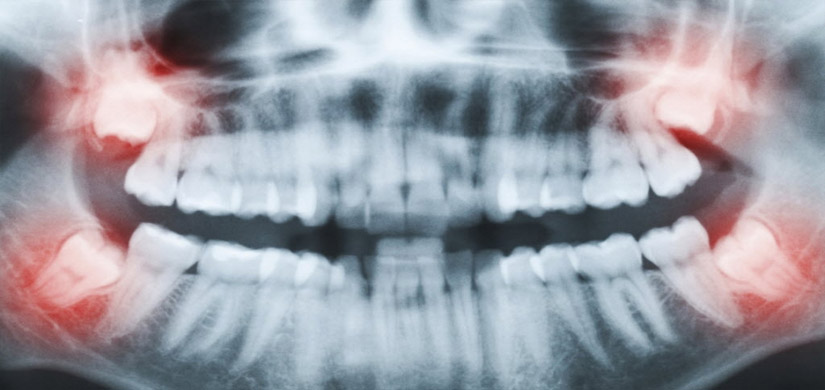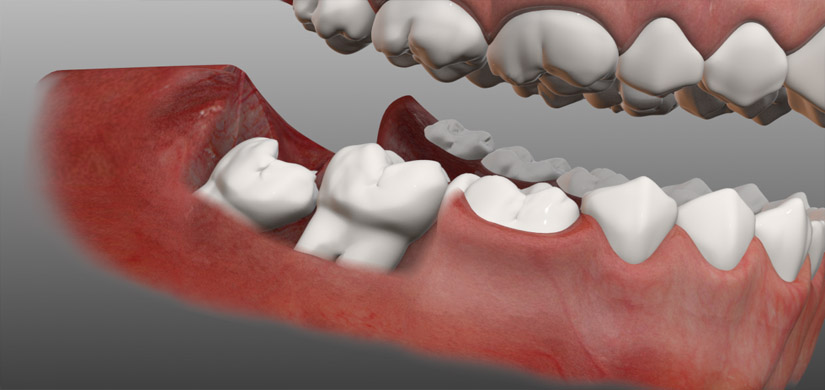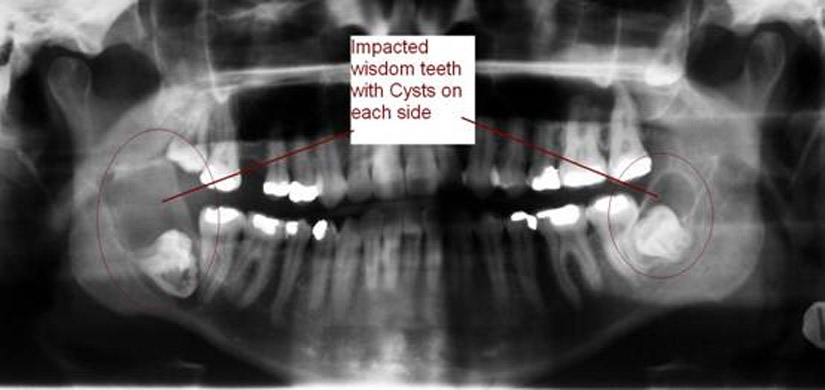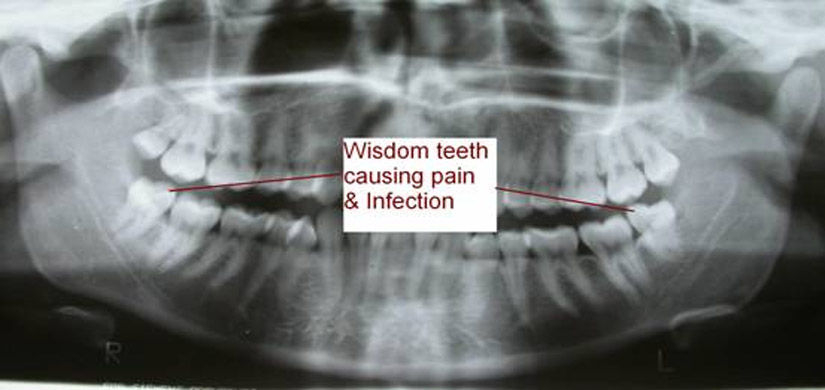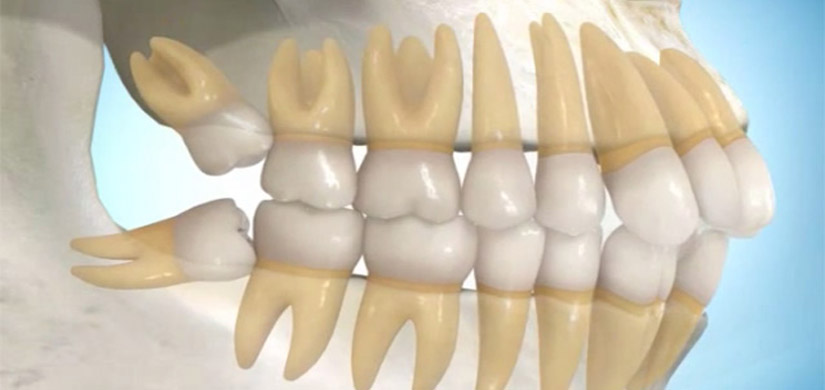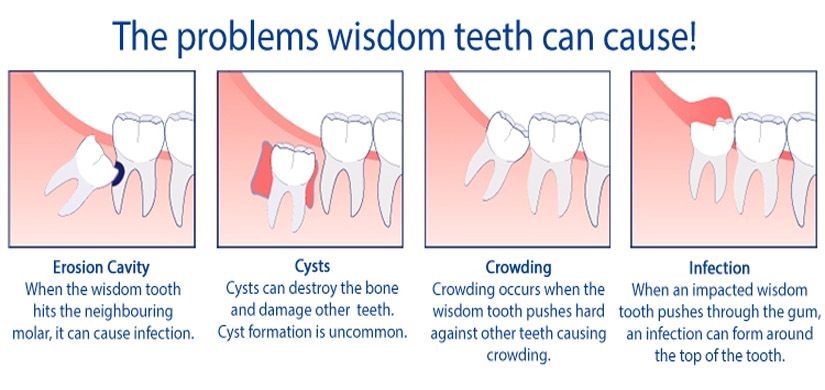Removal of wisdom teeth is a very safe and common operation but in some cases there are some risks associated with it. Most people will feel fine within a few days. The average recovery time is between 1-5 days. Some bleeding, pain, swelling, bruising and stiffness of the jaw can be expected. A semi- solid diet will be required over the first few days. Some people may need to take some time off work.
Dry socket is a complication in which the socket doesn’t heal normally. It needs to be treated by cleaning and dressing the area with specific medication by your dentist. You need to contact your dentist/oral surgeon at this stage. Painkillers can help to relieve the pain. You are more likely to get dry socket if you smoke. There are two nerves very close to the roots of your lower wisdom teeth. These nerves supply feeling to your lower lip, chin and tongue. Sometimes these nerves may get damaged when a wisdom tooth is taken out. This is related to the difficulty of the operation. This can cause a tingling sensation or numbness in your lip, chin or tongue. This is mostly temporary but in rare cases it can be permanent. Sometime broken tips of curved roots are left inside as trying to take them out will damage these nerves. This can be discussed in greater detail with the surgeon when an X-ray is available. In some cases other teeth may be damaged if they are heavily filled with amalgam or crowned.
The root is then cleaned and filled to prevent any further infection
Root canal treatment (also called Endodontics) is needed when the pulp inside your tooth becomes infected through tooth decay or damaged by an injury to your mouth. This infection may spread through the root canal system, which could eventually lead to an abscess, causing a great deal of discomfort. If root canal treatment is not carried out, the tooth may need to be taken out.

